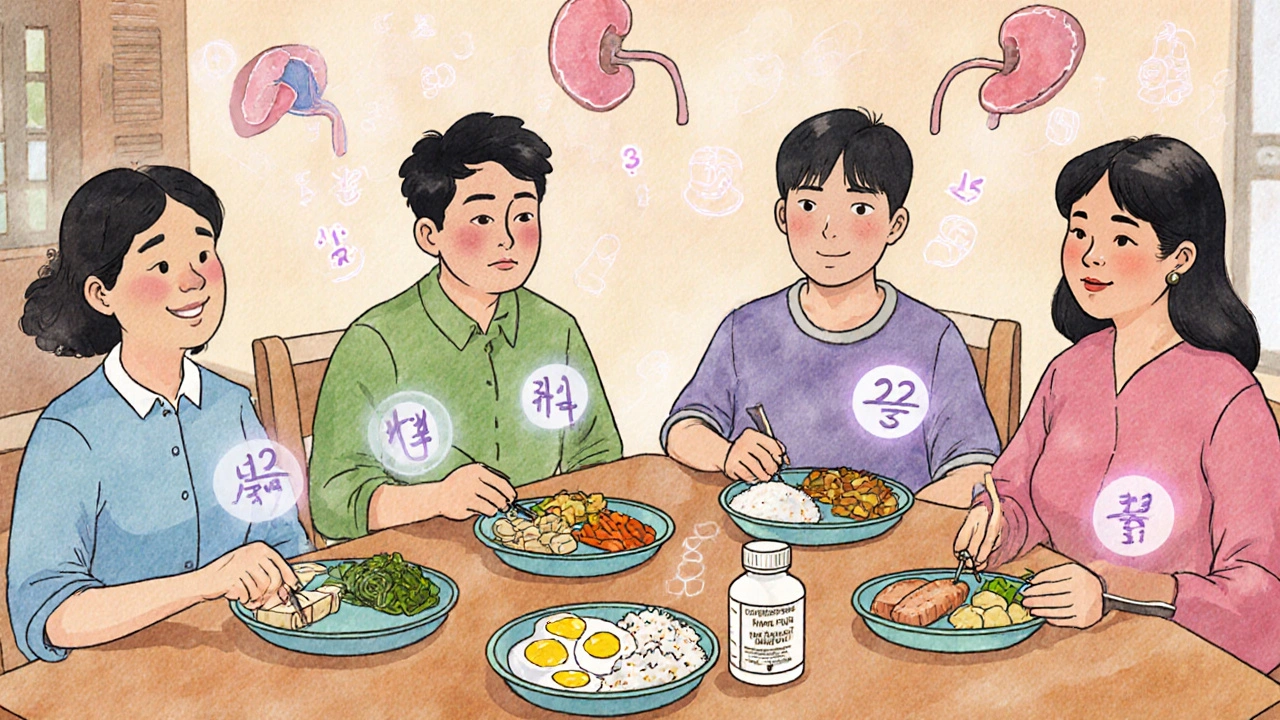Renal Nutrition: What to Eat and Avoid for Kidney Health
When your kidneys aren’t working well, what you eat becomes just as important as any medication. Renal nutrition, a dietary approach designed to reduce stress on damaged kidneys by managing intake of sodium, potassium, phosphorus, and protein. Also known as kidney diet, it’s not about starving yourself—it’s about making smarter choices so your kidneys don’t have to work overtime. Many people with chronic kidney disease, dialysis, or even early-stage kidney problems don’t realize how much their food choices impact how they feel day to day.
Renal nutrition isn’t one-size-fits-all. If you’re on dialysis, your body needs more protein but less phosphorus. If you’re not on dialysis yet, you might need to cut back on potassium to avoid dangerous heart rhythms. Phosphorus control, the practice of limiting foods high in phosphorus like dairy, processed meats, and colas to prevent bone loss and calcification in blood vessels is one of the most overlooked parts of this diet. Too much phosphorus builds up when kidneys can’t filter it out, and that’s when serious problems start. Low-potassium diet, a strategy to keep blood potassium levels safe by avoiding bananas, potatoes, tomatoes, and orange juice is another key piece. High potassium can cause your heart to beat irregularly—or stop—without warning.
What you avoid matters as much as what you eat. Processed foods are full of hidden sodium and phosphorus additives, and even "healthy" snacks like nuts and whole grains can be dangerous if you have kidney disease. You don’t have to give up flavor—lemon juice, herbs, and garlic can make food taste great without hurting your kidneys. Kidney-friendly foods, low-sodium, low-potassium, and low-phosphorus options like apples, cabbage, cauliflower, and egg whites are your best friends. And hydration? It’s tricky. Some people need to limit fluids, others need to drink more. It depends on your stage of disease and whether you’re on dialysis.
There’s no magic pill for kidney health—just consistent, thoughtful eating. The right diet can slow down damage, reduce swelling, lower blood pressure, and help you feel stronger. That’s why so many of the posts here focus on how medications and nutrition work together. You can’t fix kidney disease with pills alone. You need to pair them with food that supports, not fights, your body. Below, you’ll find real guides on managing kidney disease through diet, understanding how drugs like Tolvaptan affect fluid balance, and how to handle side effects from treatments without wrecking your nutrition plan. These aren’t theory pieces—they’re practical tools from people who’ve been there.

